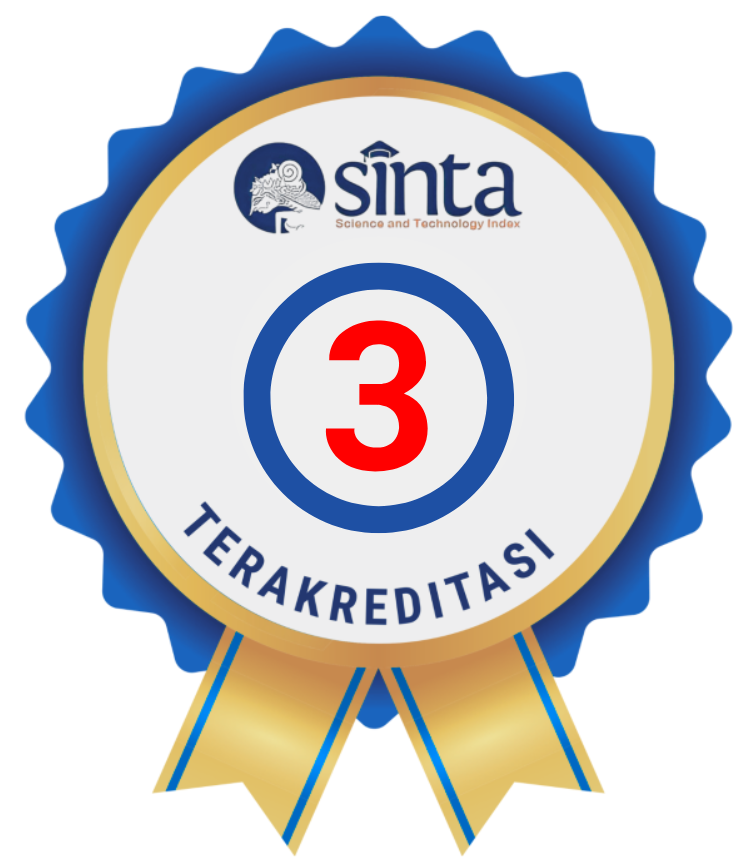PENGARUH RESPONSIVENESS, TANGIBLE, DAN EMPHATY TERHADAP KEPUASAN PELAYANAN PELANGGAN PADA PT. PLN (Persero) DI KABUPATEN ENREKANG
DOI: https://doi.org/10.26618/profitability.v3i1.2507
Abstract
Data analysis technique used in this research is multiple linear regression. To explain the description of research related to the hypothesis by using analysis: Test Validity, Test Reliability, t Test (Partial), Test F (Simultaneous). Based on the results of data analysis shows that Responsiveness (X1), Tangible (X2) and Empathy (X3), have a positive and significant effect on Customer Satisfaction (Y) shown by the value of correlation coefficient of 27.802. As for the significant test of t test that the tcount obtained is for the responsiveness variable (X1) tcount (2,212)> ttable (1.98472) at 5% significance level meaning positive and significant effect on customer service satisfaction (Y), tangible tcount (6.757 ) <ttabel (1,98427) at 5% significance level meaning positive and significant influence to customer service satisfaction (Y), empathy tcount (3,295)> ttabel (1,98472) at 5% significance level meaning positive and significant to satisfaction customer service (Y). Tangible is the dominant variable influencing customer service satisfication based on standardized coefficients with a beta value of 0,523 or 52,3%.
References
Alamry, Sugiyono, 2017. Pengaruh kualitas pelayanan terhadap kepuasan pelanggan pada toko Gramedia Surabaya, (Online), Jurnal Ilmu dan Riset Manajemen Vol. 4, No. 6, (https:// ejournal.stiesia.ac.id, di akses 15 Januari 2018).
Angipora, Marius P., 2007, Dasar-Dasar Manajemen, PT. Raja Grafindo Persada : Jakarta.
Hasibuan, Melayu. S.P. 2003. Manajemen Sumber Daya Manusia. Bumi Aksara : Jakarta.
Husein, U., 2005. Metode Penelitian Untuk Skripsi DAN Tesis Bisnis, PT. Raja Grafindo Pesada : Jakarta.
Imam, Ghozali. 2007. Aplikasi Analisis Multivariate dengan Program SPSS. BP- Universitas Diponegoro, Semarang.
Irawan, H., 2008. 10 Prinsip Kepuasan Pelanggan. Elex Media. Komputindo Gramedia. Jakarta.
Koestanto, Yuniati, 2014. Pengaruh kualitas pelayanan terhadap kepuasan pelanggan pada Bank Jatim Cabang Klampis Surabaya, (Online), Jurnal Ilmu dan Riset Manajemen Vol. 3, No. 10, (https://ejournal.stiesia.ac.id, di akses 5 Januari 2018).
Kotler, P. dan Keller, K. L., 2009. Manajemen Pemasaran Jilid 1& 2 edisi 12. Diterjemehkan oleh Bob sabran. Jakarta: Erlangga.
Kotler, Philip dan Gary Armstrong. 2003. Dasar-dasar Pemasaran. PT. Indeks Kelompok Gramedia : Jakarta
Lupiyoadi, R. dan Hamdani, A., 2009. Manajemen Pemasaran Jasa. Edisi 2. Salemba Empat. Jakarta.
Lupiyoadi, R. 2014. Manajemen Pemasaran Jasa Berbasis Kompetensi. Edisi 3. Salemba Empat. Jakarta.
Panjaitan, Yuliati, 2016. Pengaruh kualitas pelayanan terhadap kepuasan pelanggan pada JNE Cabang Bandung, (Online), DeReMa Jurnal Manajemen Vol. 11 , No. 2, (https:// ojs.uph.edu.ac.id, di akses 7 Januari 2018).
Payne, Adrian, 2005. Pemasaran Jasa ( the essenceof service marketing ), Cetakan Pertama. Penerbit Andi : Yogyakarta
Shinta, Agustina. 2011. Manajemen Pemasaran. UB Press: Yogyakarta.
Sugiyono. 2014. Metode Penelitian Pendidikan. Alabeta: Bandung.
Tjiptono, Fandi. 2014. Pemasaran Jasa. CV. Andi Offset. Yogyakarta.
Downloads
Published
Issue
Section
License
Authors who publish with Jurnal Ilmu Manajemen Profitability agree to the following terms:
Copyright of the articles remains with the authors.
Authors grant the journal the right of first publication with the work simultaneously licensed under a Creative Commons Attribution-NonCommercial 4.0 International License (CC BY-NC 4.0). This license allows others to:
Share (copy and redistribute the material in any medium or format)
Adapt (remix, transform, and build upon the material)
as long as they give appropriate credit to the original author(s) and source, provide a link to the license, and indicate if changes were made. Non-commercial use only.
Authors are permitted to:
Distribute their published work (e.g., post it to an institutional repository or publish it in a book), with an acknowledgment of its initial publication in this journal.
Enter into separate, additional contractual arrangements for the non-exclusive distribution of the journal’s published version of the work (e.g., post it to a class website or institutional archive).
For permissions to use the content published in this journal beyond the scope of the license (e.g., commercial purposes), please contact the editorial office via the journal email.
License Details:
This journal is licensed under a Creative Commons Attribution-NonCommercial 4.0 International License (CC BY-NC 4.0).












